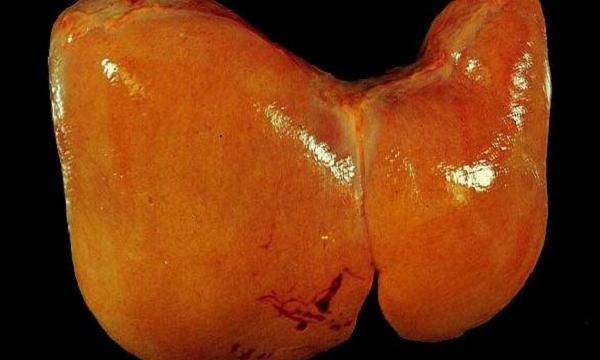
Fasting may help fight fatty liver disease: German scientists
Amman (IINA) – German scientists have revealed that fasting has positive impact on the human body, especially on fatty liver disease, the most common liver disorder worldwide.
Scientists at Helmholtz Zentrum München were able to show that upon deprivation of food a certain protein is produced that adjusts the metabolism in the liver. The results are published in the Open Access Journal ‘EMBO Molecular Medicine’.
The journal quoted Dr. Adam J. Rose of the German Cancer Research Center at the Helmholtz Zentrum München as saying: “Once we understand how fasting influences our metabolism we can attempt to bring about this effect therapeutically.”
In the current study, the scientists looked for liver cell genetic activity differences that were caused by fasting. With the help of so-called transcript arrays, they were able to show that especially the gene for the protein GADD45β was often read differently depending on the diet: the greater the hunger, the more frequently the cells produced the molecule, whose name stands for ‘Growth Arrest and DNA Damage-inducible’. As the name says, the molecule was previously associated with the repair of damage to the genetic information and the cell cycle, rather than with metabolic biology.
Subsequent simulation tests showed that GADD45β is responsible for controlling the absorption of fatty acids in the liver. Mice who lacked the corresponding gene were more likely to develop fatty liver disease. However when the protein was restored, the fat content of the liver normalized and also sugar metabolism improved. The scientists were able to confirm the result also in humans: a low GADD45β level was accompanied by increased fat accumulation in the liver and an elevated blood sugar level.
